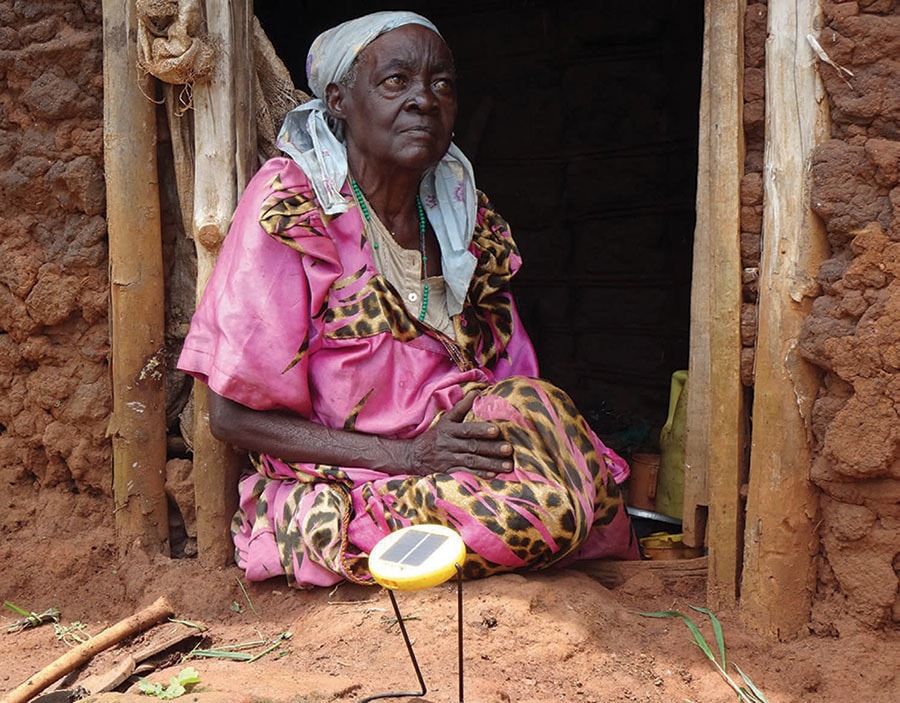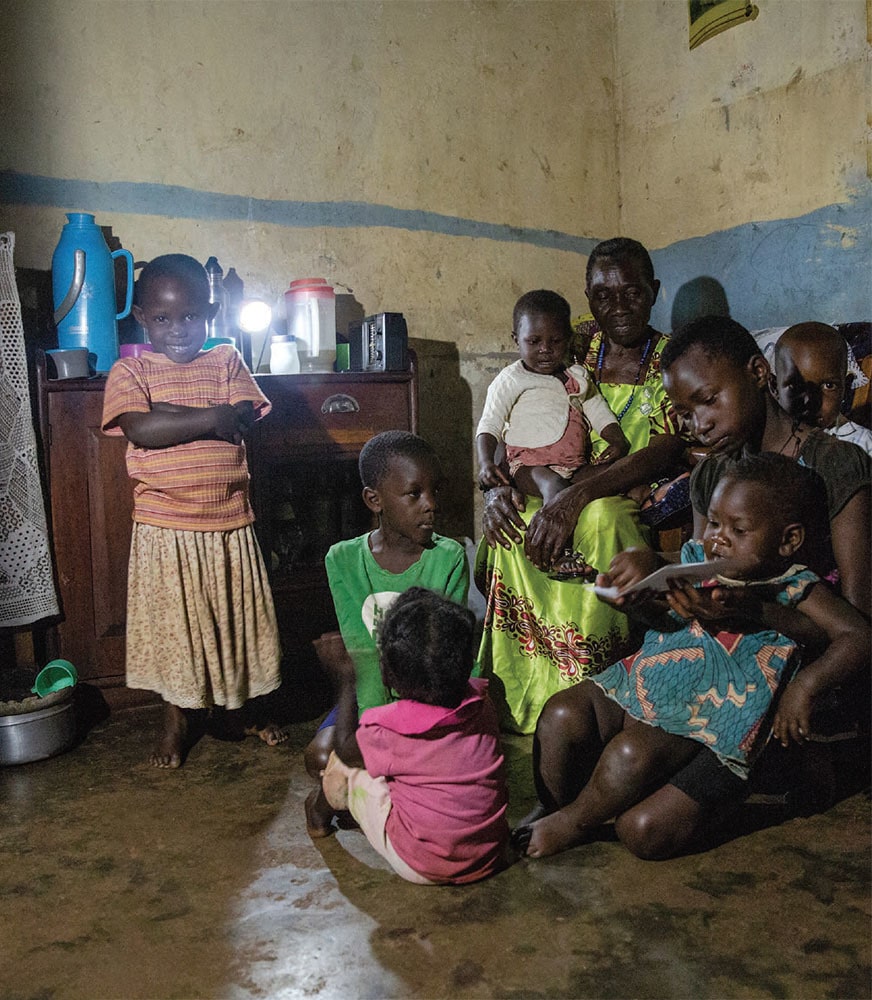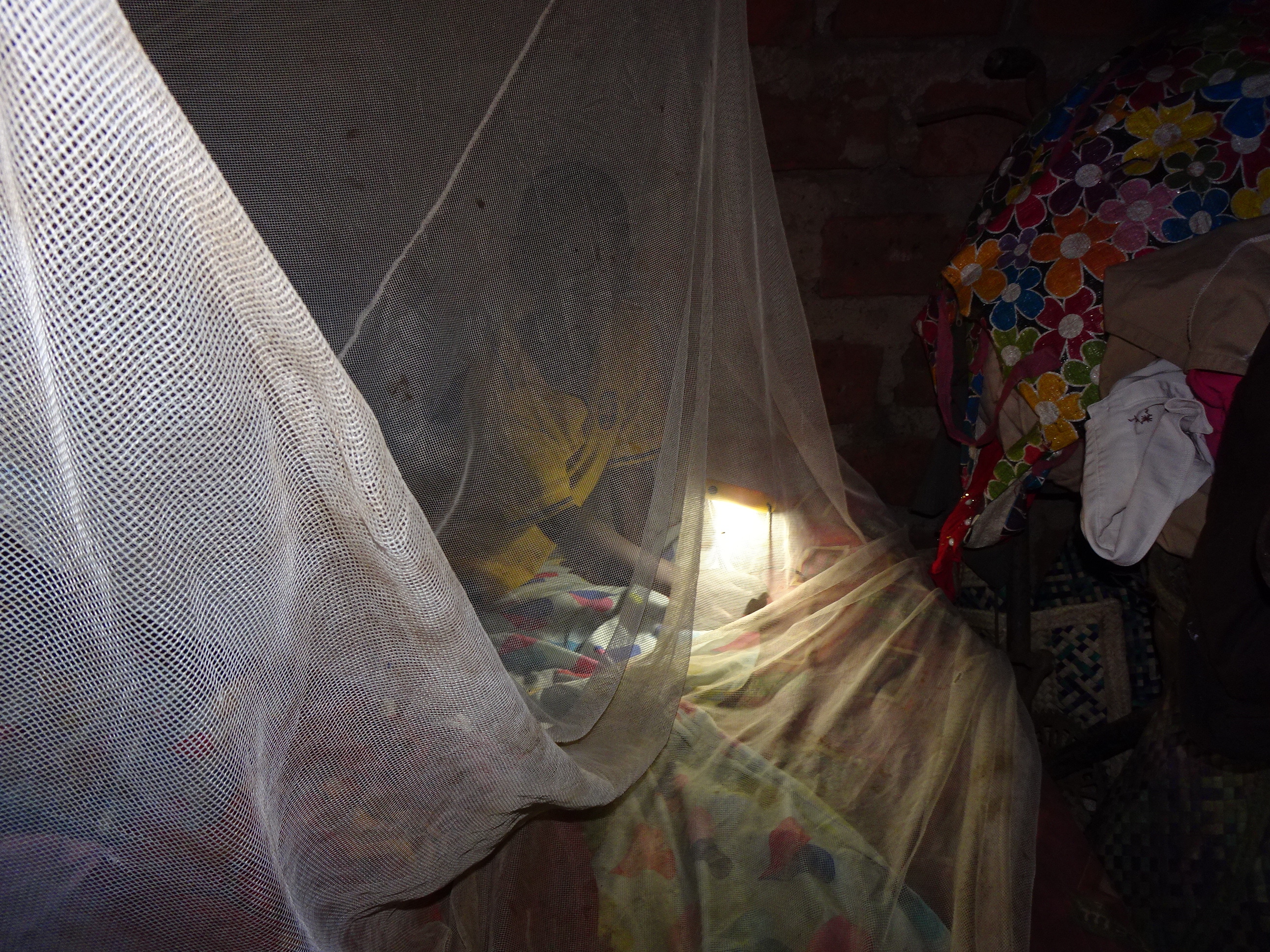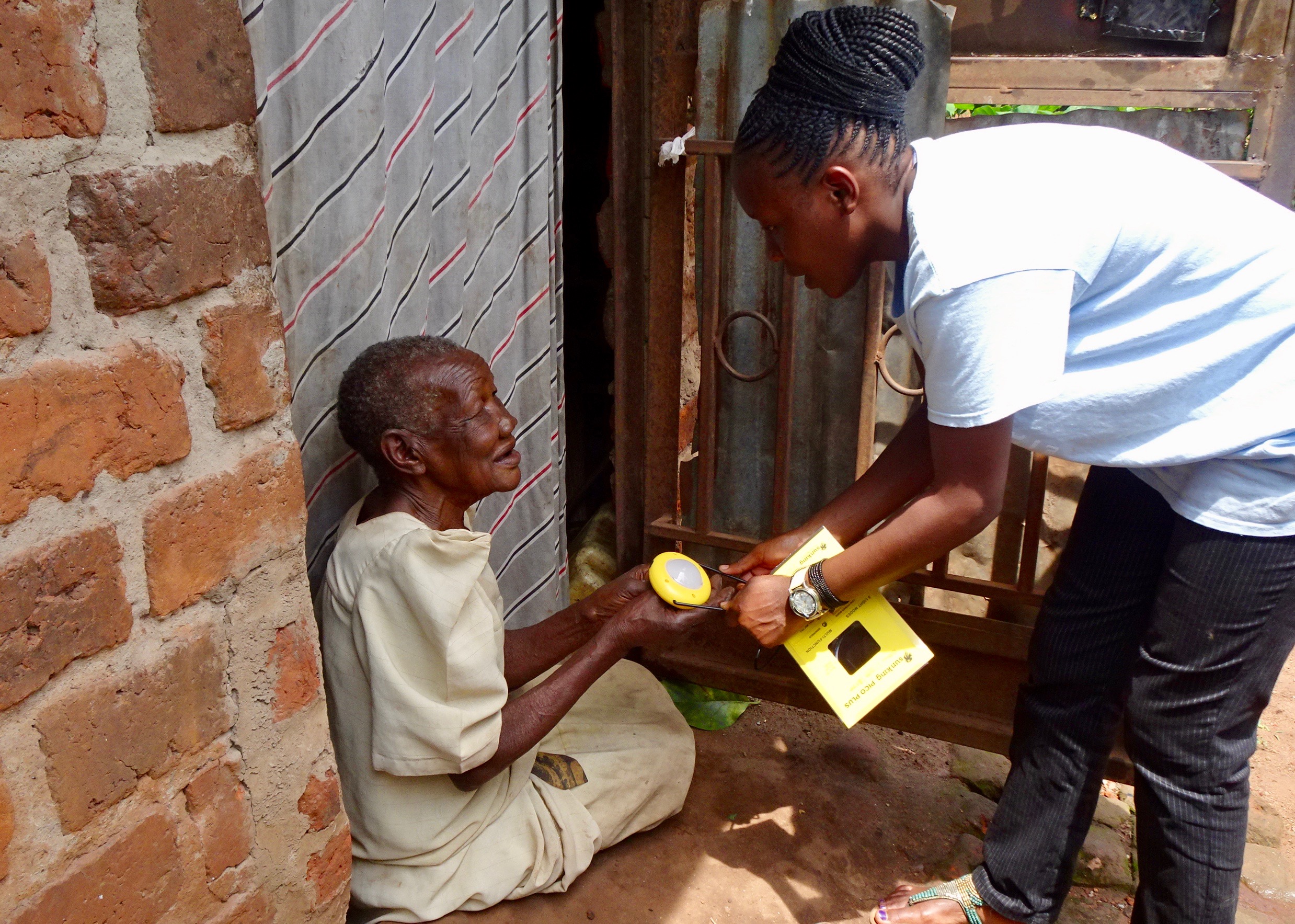Going Green – from Buffalo to Africa

IMAGINE YOU LIVE WITHOUT electricity—no appliances, no outlets, no computer or TV. Your only source of light is a small kerosene lamp that’s dangerous, expensive, and emits black carbon that coats your ceiling in soot and causes respiratory and other health problems for your family. That’s the reality for many who live in energy poverty. According to the United Nations, that’s about one billion people worldwide—roughly thirteen percent—who live without access to safe, reliable electricity; more than half are in sub-Saharan Africa alone.
Five years ago, as a stay-at-home mom in Connecticut, Sarah Baird saw this problem and wanted to take action. A Buffalo native, Baird had recently completed her master’s degree in humanitarian services administration, focusing on rural off-grid electrification, and had long been interested in issues like climate change. “I actually got very active in environmental issues while I was at Nichols. As I progressed through my education—high school, college, graduate school—I was really interested in how we can take direct action to impact things that seem much larger than ourselves,” says Baird, specifically recalling a summer she spent in a remote Kenyan village. “Kenya really taught me about inequity, but it also taught me there’s joy and goodness [everywhere]—that people have gifts and are intelligent everywhere—but opportunity is not universal.”
Taking Action
Baird founded Let There Be Light International (LTBLI) in 2014 and relocated the organization to Buffalo last year when she and her family moved back. The nonprofit’s mission is simple: to combat energy poverty and climate change by distributing solar lights in poor off-grid communities. “I wanted to figure out a way to allow those of us involved in the environmental movement here in the US to have global impact, not just going to marches—though I love marches and go to plenty—but to actually be able to get light into somebody’s home,” she says.



For fifteen dollars, LTBLI can purchase and distribute a solar light to a household in a remote village in Uganda and Malawi (and will expand into Kenya this year). LTBLI works with partner organizations to identify off-grid families living in extreme poverty that fall into at least one of five MODES—mother, orphan, disabled, elder, or student. From there, LTBLI purchases the lights in-country to stimulate local markets and then works with partners to get them into households and follow up to ensure they’re working and being used properly.
Making an Impact
Over the past five years, the organization has distributed about 10,600 solar lights to homes representing about 55,500 individuals across Uganda and Malawi. In addition, the organization has solar-electrified twenty-six health clinics, which has allowed those facilities to see patients around the clock for the first time.
Beyond statistics, the impact of LTBLI’s work can be exponential. For example, nearly every household with solar light reports improved health after six months. Plus, money saved from not purchasing the kerosene lamps—up to twenty percent of household income in some cases—can be diverted to food, health, education, and other basic living expenses.
“The impact is cascading,” Baird says. “Health centers that used to be open for only eight to ten hours a day are open twenty-four hours a day. Attended births are up four hundred percent.”
On the environmental front, the solar lights help, in a small way, to educate people and fight climate change. While the kerosene lamps release carbon particles into the atmosphere and only last a few hours, the solar lights are renewable and can work for three to five years, after which the manufacturer will recycle the device. LTBLI has also conducted trainings in local languages with several African women, who now work in the solar and distributed renewable industry.
“A lot of people [we work with] already know about climate change, but don’t know why it’s happening,” Baird says. “Their growing seasons have changed; there’s desertification. They’re feeling the impact and know something has happened globally—and they also want to be part of the solution. So when we educate them about solar and they feel empowered to take action to not harm their health, safety, and the environment, it’s a really beautiful way for us to gain buy-in across cultures and communities.”
Advocating for Change
An important piece of LTBLI’s work is advocacy, both locally and internationally. Baird has testified at the UN multiple times on renewable energy and reaching vulnerable populations, and LTBLI is a signatory to the Paris Pledge for Action, a promise by organizations, cities, and other groups to uphold the goals of the Paris Agreement on climate change. Locally, the organization hosted its first solar celebration at Silo City last year (look for the event again this summer). And before Earth Day in April, LTBLI will roll out a new campus-based program, Shine on Students, to educate and empower high school and college students.
“There’s a growing global push to try to get energy access for all by 2030,” Baird says. “I love being able to advocate on behalf of the poorest people, who are being left out of a lot of these conversations. And I love being part of conversations here in the US, where people are saying, ‘This is so horrible that we’re withdrawing from Paris.’ We’re able to say, ‘Yes, but locally and regionally, we’re doing things—and you can too.’”

0 Comments